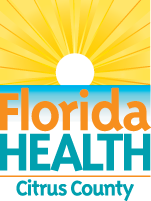The COVID recession lasted for just two months: March and April 2020. Since then, the economy has been recovering, at times growing faster than it has in almost 40 years.
But everyone who has lived through the COVID years know that there’s a lot more to the story.
Across the nation and here in Maine, the recession and subsequent recovery were not felt in the same way by everyone.
Maine has still not made it all the way back, despite 22 months of economic growth. There are 20,000 fewer employed people than there were before the pandemic. But you wouldn’t know that by looking at state finances. Money is coming in faster than anticipated, with revenue forecasters adding $411 million to the $822 million surplus that lawmakers have been tasked with distributing in order to keep the two-year budget that was passed last year in balance.
Gov. Mills had proposed sending half of the original surplus back to Maine people in the form of $500 checks that would go to roughly 800,000 taxpayers. With the new projection, Mills has said she would like to boost the checks to $750. Even though a lot of people would appreciate the help, we hope lawmakers remember the unequal way this recession has affected the state. Maine had unmet needs before the pandemic, and they didn’t go away during the last two years. If anything, they got worse.
Another $200 million could make important investments that could pay off in the future: in community mental health, in housing and in support for families with children. Using this windfall to improve the lives of people who were hit hardest by the pandemic, many of whom were suffering even before it hit, would be the best way to manage Maine’s recovery.
Mills’ original idea, the $500 payments, makes sense considering the unusual character of the economy.
The tax collections show that total incomes are rising, but for whom? The stock market is booming, which is great if you own stock but not much help if you don’t. Home prices are skyrocketing, and that’s good for sellers but not for buyers.
Most importantly, wages have increased, but so have prices, and that affects everyone whether they got a raise or not.
There is nothing that the state can do to control inflation, but it can put money in the pockets of people who have had to pay more at the grocery store and gas pump. And sending everyone in Maine the same amount helps people at the low end of the wage scale more than those at the top, who need help less. It’s certainly better than a cut in tax rates, which would send the most money to those with the biggest incomes and dig a long-term hole in future budgets.
But inflation is not the only problem affecting Maine families.
Historic underfunding of community mental health services has only gotten worse during the pandemic when additional federal funds have not kept up with increased demand for services. Lawmakers should ask if there are investments they could make in upfront program costs that would be sustainable in the long term with MaineCare reimbursements, which are paid mostly by the federal government.
Nursing homes, group homes, substance use treatment centers and other service providers are struggling to keep their doors open, let alone expand, because they cannot offer competitive wages. A creative use of surplus revenue could do more good than sending out checks to people who may not even need them.
We are nearly two years away from the unprecedented recession caused by what we then knew as “the novel coronavirus.” In many ways we have bounced back better than many had predicted.
But just like the virus, the economic disruption did not affect everyone in the same way. Our response to these unprecedented economic conditions should reflect that.
Related Stories









Invalid username/password.
Please check your email to confirm and complete your registration.
Use the form below to reset your password. When you’ve submitted your account email, we will send an email with a reset code.